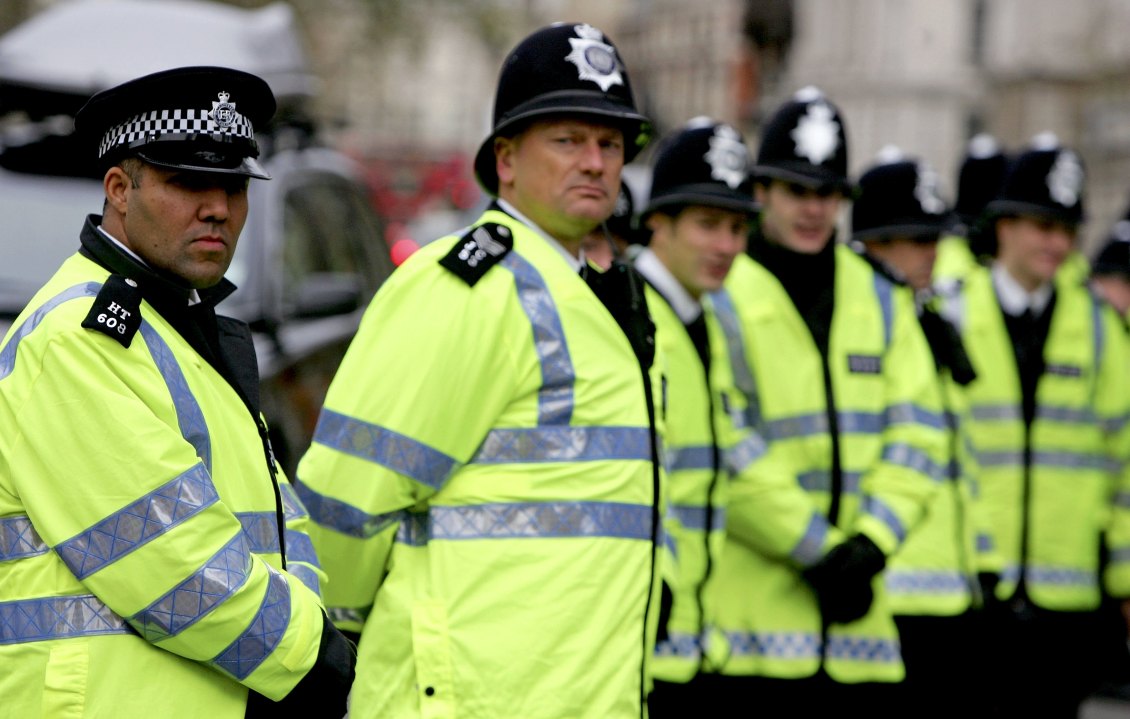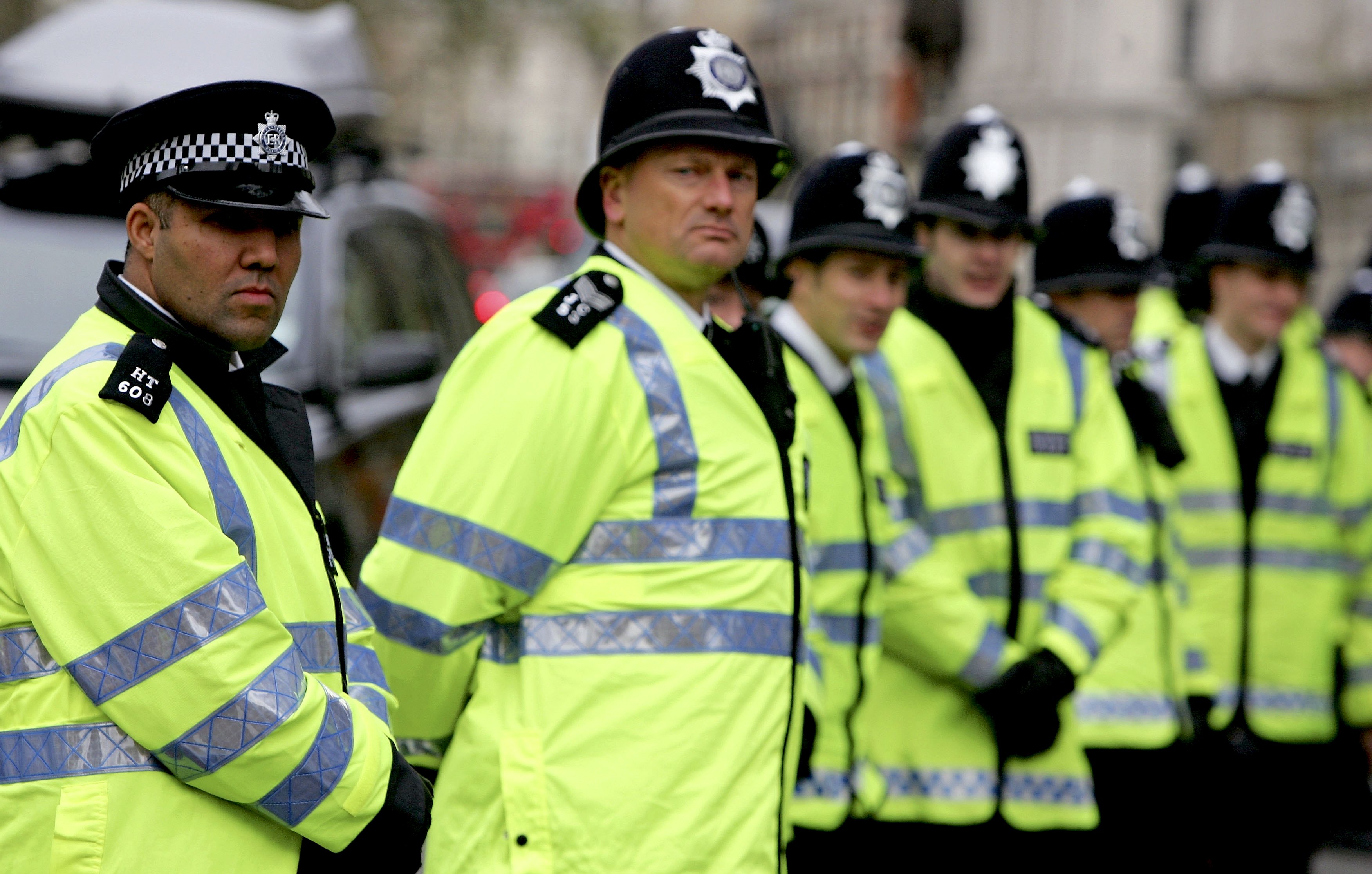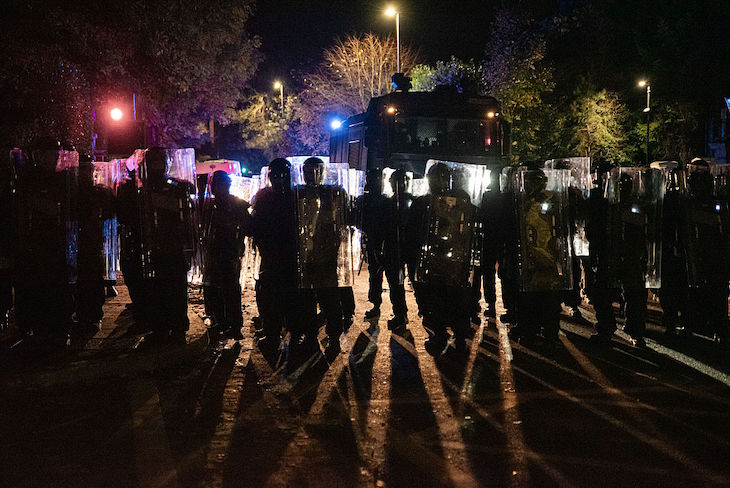By the standards Shabana Mahmood has set for herself, the speech she made to police leaders at their annual conference in Westminster last week was not the most gripping. The Home Secretary’s delivery was stilted, awkward even, as she stuck closely to the script on the lectern in front of her. She left the stage as soon as she had finished without taking any questions.
But there were two sections in Mahmood’s 20-minute address that stood out, sparking speculation that a once-in-a-generation overhaul of policing is on the way. She told the chief constables and police and crime commissioners (PCCs) assembled at the QE II Centre that she would be a ‘reformer at the Home Office’. Then, she referred to the way the £19.9 billion police service is organised in England and Wales.
‘The structure of our police forces is, if we are honest, irrational,’ she said. ‘We have 43 forces tackling criminal gangs who cross borders, and the disparities in performance in forces across the country have grown far too wide, giving truth to the old saw that policing in this country is a postcode lottery.’
Mahmood is right: the way policing is set up makes no sense. The 43-force model, which was designed in the 1960s, has led to parochialism of the worst kind, with chiefs and PCCs pursuing local pet projects at the expense of national priorities. Too many constabularies still have specialist units, in firearms, public order and traffic, and support functions, such as vetting, payroll and human resources, that could be delivered more efficiently at a regional level. The procurement of police equipment, vehicles and IT by local forces has led to poor decisions and wasteful spending.
The need to economise has never been greater. The National Police Chiefs’ Council (NPCC) estimates that the police service has an overall deficit of £600 million which will exceed £1 billion without financial support or reform. Around 20 forces are struggling to balance their books; for some, it will mean savage cuts. The reality, however, is there will be no massive injection of cash from the Home Office or local councils, the two main sources of police funding, so reform is the only option.
The type of reform that could yield the greatest savings is through the amalgamation of police forces, as happened in Scotland in 2013, when eight constabularies combined to form one – Police Scotland. It’s estimated to have saved Scottish policing about £200 million each year, that’s around 12.5 per cent of its annual budget. Even though a similar re-structuring in England and Wales is unlikely to achieve quite as much as that, because some forces have already cut costs and are collaborating, it would undoubtedly make a huge difference to police budgets in the long run.
And there has never been a better moment for such reform. Key law enforcement figures, including the Metropolitan Police Commissioner, Sir Mark Rowley, and Gavin Stephens, the NPCC Chair, back the move to bigger and fewer forces. PCCs, who would no doubt have resisted efforts to merge the police forces they are responsible for, are in a weakened position after Mahmood decided to abolish them in 2028. And the Home Office is already planning a shake-up of policing, involving greater centralisation of powers and services, such as air support and forensics, as part of a White Paper, expected next month.
There is understandable wariness in Whitehall
What may hold ministers back, however, are the scars from the previous contentious attempt to integrate police forces 20 years ago, when Charles Clarke, who was then home secretary, wanted to move from 43 to 13. Clarke’s idea was eventually abandoned amid intense local opposition, particularly in areas where council taxpayers would have ended up with bigger bills due to discrepancies in police funding. There is also understandable wariness in Whitehall about the disruption caused by such a major reorganisation and the substantial up-front costs involved before any savings are realised. The status quo may be seen as a safer alternative.
But in her 16 months in government, Shabana Mahmood has already demonstrated that she does not lack political courage. Sweeping changes to sentencing and prisons while she was at the Ministry of Justice have been swiftly followed at the Home Office by proposals to tear up rules on asylum benefits and migrants’ settlement rights, as well as the surprise move to scrap PCCs. Surely, it would not be a step too far for Mahmood to facilitate the merger of police forces where there is local support and a sound business case. Next May, the two constabularies of Norfolk and Suffolk will, for the first time, be overseen by an elected mayor. Does it make sense to keep the two forces separate? In the East Midlands, the mayor of the new combined authority may assume policing control in the future over the Nottinghamshire and Derbyshire forces, which already share some functions. What savings could be achieved if they were to merge?
The changing nature of regional politics is the key which could unlock the door to a more streamlined police service. But it will need the home secretary’s firm backing. Shabana Mahmood, the self-styled ‘reformer’, must now provide it.








Comments